Category: legalization
Illinois created a cannabis industry mess. Here’s how to begin cleaning it up.
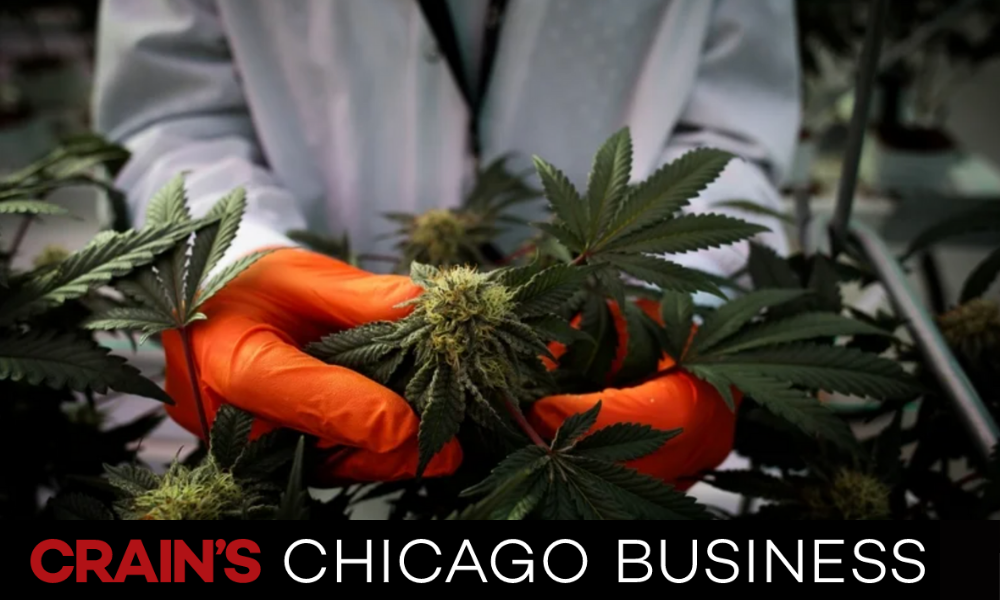
OPINION: Andy Poticha calls on state lawmakers to grant universal extensions to give new cannabis entrepreneurs, who are already under tight deadlines and facing pandemic-related supply chain shortages, more time, flexibility and the certainty to launch their business and leverage high quality resources. Poticha asks the state to make amends for its own delays and treat new cannabis entrepreneurs as the business partners they are, important future generators of significant tax revenue for Illinois and leaders in the cannabis industry.
Read more in Crain’s Chicago Business here (requires log-in) OR reach out to us at info@cannabisfacility.net, and we can share the full article with you.
Cannabis Facility Construction Expands into Virginia with Design-Build Project for Dharma Pharmaceuticals

CHICAGO, IL (AUGUST 12, 2021) – Cannabis Facility Construction (CFC), a national, full-service, cannabis design-build construction firm, is pleased to have completed construction on a new medical dispensary for Dharma Pharmaceuticals in Salem, Virginia.
“We’re thrilled to partner with Dharma Pharmaceuticals to support their entry into the emerging Virginia medical cannabis market,” said Andy Poticha, Principal at Cannabis Facility Construction. “Our clients value our extensive design-build expertise and our ability to provide speed to market, which is essential to opening quickly and correctly.”
The new medical dispensary is located at 1634 W. Main Street in Salem. To create a differentiated and welcoming customer experience, careful consideration was given to customer flow between easy-to-browse product displays and point of sale stations so consultations and transactions can take place with social distancing in mind. In addition to the wood and masonry retail space in the front, the dispensary includes secure vaults for inventory storage, back office space, and a highly advanced security system.
“Cannabis Facility Construction’s ability to help us achieve speed to market is essential and one of the reasons we decided to work with them,” said Jack Page, Market Leader for Green Thumb, which acquired Dharma on July 1. “They provided the right value to convert the space into the medical dispensary and had the right experience to hit the ground running.”
For more information on these and other projects by Cannabis Facility Construction, visit www.cannabisfacility.net.
The Rise of Hemp: The Federally Legal Industry is Booming
The hemp-derived CBD industry is expected to reach $16 billion nationwide by 2025. The ground-breaking Agriculture Improvement Act of 2018 or Farm Bill removed low-THC cannabis and its derivatives from the Controlled Substances Act, opening the door for FDA-regulated products like CBD pharmaceuticals, food items, additives, and dietary supplements. Already, major retailers like CVS and Kroger are selling CBD products. Granted CBD products, including CBD-infused water, CBD-infused cosmetics and CBD-infused pet treats in the marketplace pre-dated the Farm Bill, those products can now be shipped across state lines and sold legally at the federal level. Here’s what you need to know about the rise of hemp in the U.S.
Hemp Vs. Marijuana
Hemp and marijuana look and smell nearly the same, but the similarities stop there. They derive from the same plant, cannabis sativa, but hemp contains less than .3% THC while marijuana has much higher levels. Hemp is now considered a federally legal agricultural product, and majijuana remains a DEA Schedule 1 drug, only legal in states with medical and adult use programs. In addition, hemp is regulated by the FDA and marijuana is not.
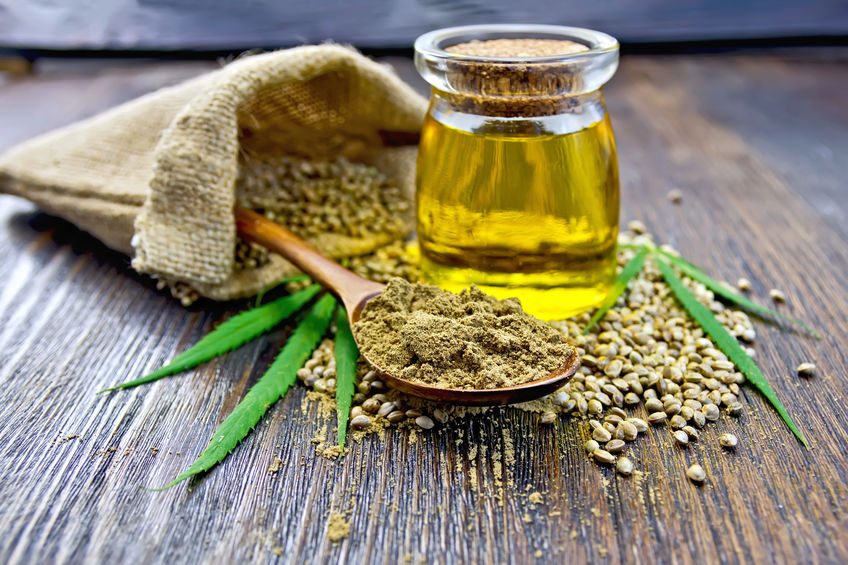
Hemp Facilities
Just like with marijuana, there are hemp cultivation facilities, processing centers, and retail businesses. The focus and capital investment has been on processing centers with businesses in Colorado City, Colorado and Janesville, Wisconsin leading the charge.
Colorado City has a population of under 3,000 but is home to Paragon Processing, the largest hemp-processing center in the United States. According to Westword, Paragon will produce a variety of hemp extractions through isolation and distillation techniques, projecting to produce one million pounds of hemp monthly. Industrial hemp production has the complete buy-in from Governor Jared Polis. “Governor Polis’s administration has pushed for looser regulations on hemp farmers and businesses in order for this state to maintain its top spot in the hemp industry,” adds Westword. “During a recent speech at a hemp and CBD industry conference, Polis said that hemp farming was part of his rural economic initiative, and that he’d like to raise Colorado’s current 62,000 acres allotted for hemp farming by 20 percent.”
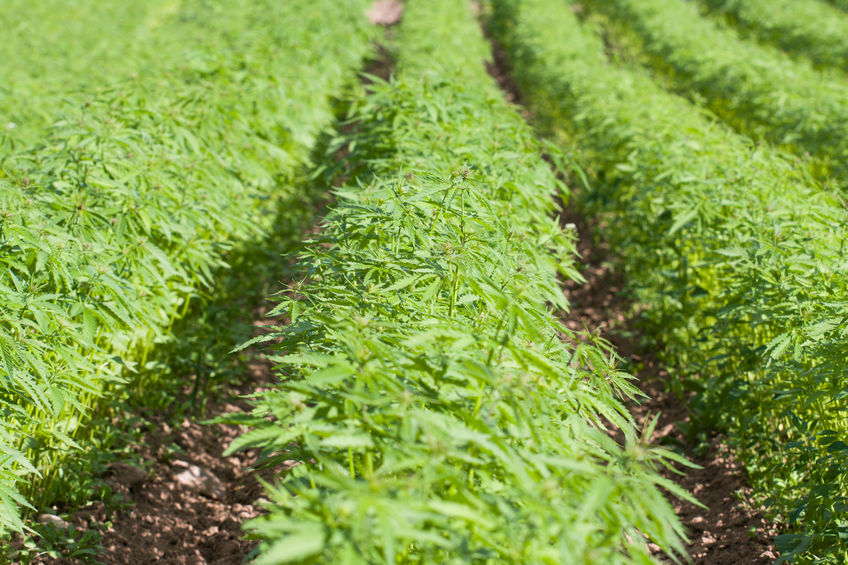
Wisconsin’s young market already has as big player in Simply Solutions, a maker of natural personal care products, getting into the hemp game. Simply Solutions will be the area’s first-to- market commercial-sale processing facility with another distinction: a method that extracts almost 100% CBD oil content.
Per GazetteXtra, “Simply Solutions claims their extraction process is a cleaner and more efficient way to extract more CBD from hemp…Methods other producers use extract only 60% to 70% of the CBD, they said.That’s important, considering that some strains of hemp grown for CBD can net $2,500 to $75,000 an acre, according to New Frontier Data, a cannabis industry analyst.”
Sourcing hemp from reputable farmers is crucial for CBD purity, as many companies are extracting CBD from hemp plants not bred for CBD.
Licensing and Regulations
The Farm Bill gives states the authority to submit plans for licensure and regulations. According to the National Conference of State Legislatures, “A state plan must include certain requirements, such as keeping track of land, testing methods, and disposal of plants or products that exceed the allowed THC concentration…State policymakers have taken action to address various policy issues — the definition of hemp, licensure of growers, regulation and certification of seeds, state-wide commissions and legal protection of growers.”
Keeping Marijuana and Hemp Separated “Marijuana entrepreneurs who want to enter the federally legal CBD industry should consider starting a CBD business separate from the marijuana entity,” according to Marijuana Business Magazine. Though the Farm Bill has federally legalized the hemp industry, marijuana remains a Schedule 1 drug, and the main concern for businesses is extracting CBD that stays below .3% THC content. However, the same owner can have separate hemp and marijuana businesses.
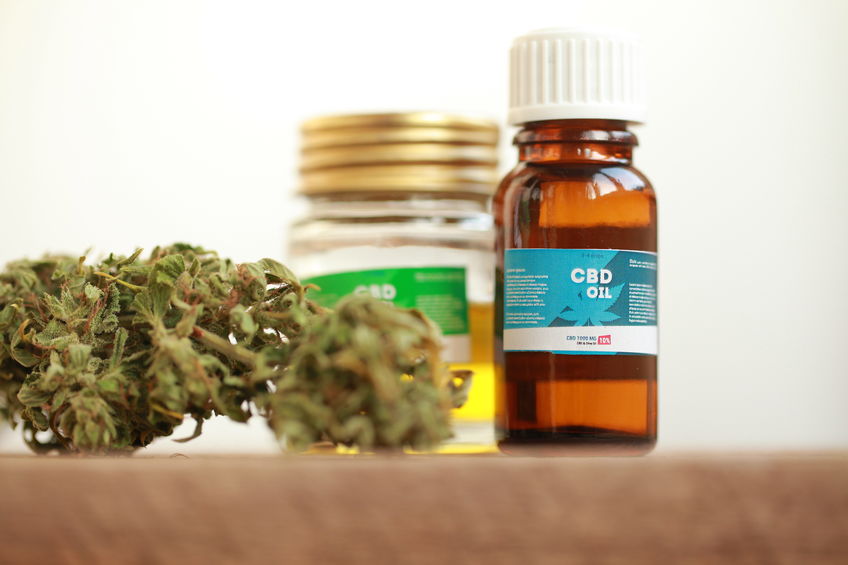
The same article reported that Fairwinds, located in Washington state, faced a dilemma, desiring to enter the hemp space. The company’s products include tinctures, capsules, and topicals derived from a cannabis strain with CBD-dominant ratios, but with THC content above the limit. “The solution wasn’t simply removing THC from the products, because that would make them less effective. Rather, in anticipation of hemp legalization, Fairwinds CEO James Hull and his team spent more than a year finding new cannabinoids that could replace THC in formulations that would be federally legal while still an effective treatment.”
In the spirit and best practice of keeping the businesses separate, Hull ultimately created a new entity called Fairwinds CBD.
Less Oil Means More Plants
Another significant difference between hemp and marijuana is hemp’s lower oil content, which means that business owners must process more of the crop for an adequate CBD oil yield. Marijuana Business Magazine interviewed Craig Henderson, CEO of Extract Labs, a Boulder, Colorado-based extraction firm and CBD products manufacturer, who says hemp processing facilities will need larger extraction machines. “He [Henderson] estimated that a large marijuana company processes 100-300 pounds of cannabis per week, whereas large hemp companies process 2,000-10,000 pounds of the plant each week.”
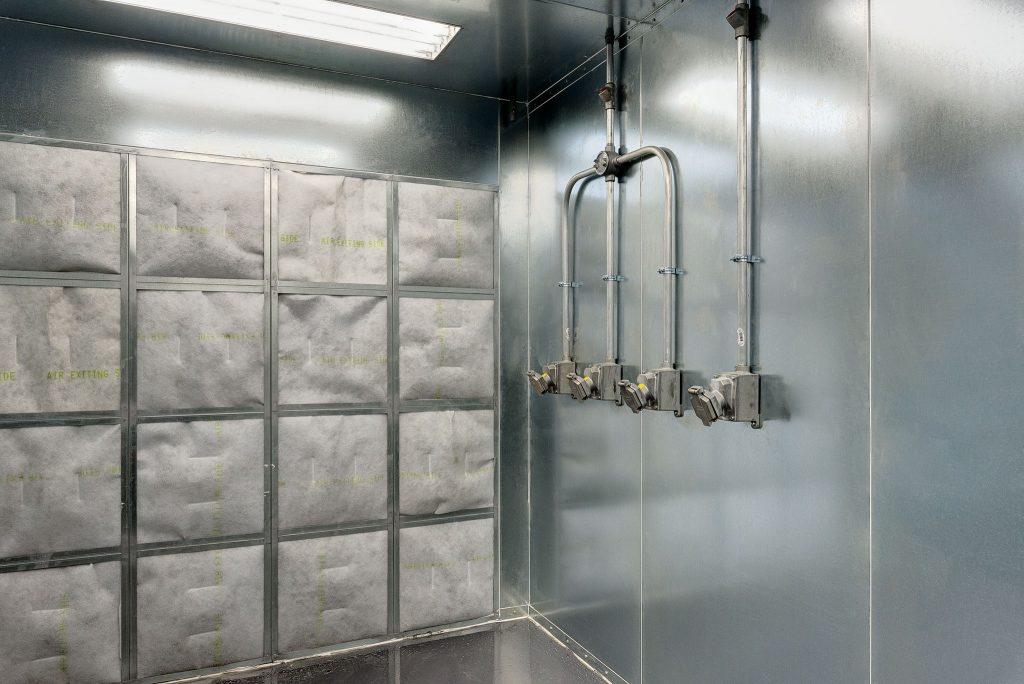
In addition to larger equipment, business owners will need more employees and more space to handle the volume of product and extraction needs of hemp. “I think it’ll take people a couple months to figure out what they want to do and how they’re going to create businesses, and hopefully, maybe by June, we’ll see a huge spike in interest,” adds Henderson.
Proceed with Caution
The FDA remains the be all and end all governing body when it comes to regulating hemp. Hemp-derived CBD companies must be judicious about their product descriptions, especially information on potential health benefits. Moreover, the FDA has not given CBD as a food additive the designation of Generally Regarded as Safe.
What’s New for America’s Most Popular Cannabis States?
2019 has been the year of the cannabis plant in the United States. New states have joined the recreational cannabis club, young medical programs are exploding, mature ones are diversifying, and the Northeast is inching along. Here is the latest on the nation’s most popular cannabis states.

Colorado’s Cannabis Program Adds Versatility
Changes are coming to Colorado’s medical and recreational cannabis programs. House Bill 1230 will allow legal social consumption at businesses like dispensaries, restaurants, hotels, and music venues. Home-delivery of medical cannabis can begin in 2020, followed by recreational in 2021 thanks to the passage of House Bill 1234. In response to the state’s opioid epidemic, Governor Jared Polis signed the MMJ for Opioids Bill, which allows doctors to recommend medical cannabis as an alternative to opioid medications. The medical program also added autism to its list of qualifying conditions. Finally, House Bill 1090 opens Colorado’s cannabis industry to out-of-state investors and capital, including publicly held companies and large venture funds. Per Westword, “The bill would also permit investors to own smaller stakes (less than 10 percent) in a cannabis business.”
Illinois Hits a Snag
According to the Illinois Regulation and Tax Act, the state’s 55 existing medical dispensaries would have first dibs at applying for a recreational sales license at the same site, plus a second license for one at a different location. However, recently, The Illinois Department of Financial & Professional Regulation, the agency in charge of issuing those initial recreational-use licenses, announced a different interpretation: “…if a medical dispensary wishes to relocate for any reason — whether it’s for more space or if a home municipality bans recreational sales — it forfeits its right to also sell recreational marijuana,” per the Chicago Tribune.
This has created chaos for companies like Green Thumb Industries (GTI), which was awarded a retail license by the state in its Naperville location before the city council opted out of the program. “Naperville’s 6-3 vote on Tuesday, September 3 (2019) marks one of the first major roadblocks for Illinois’ marijuana industry as it prepares for recreational sales next year,” the Chicago Tribune added. “Whether GTI, or any other company, can open a store for recreational marijuana, could be reconsidered by the council after a potential non-binding voter referendum.”
Other municipalities in Chicagoland to ban recreational stores include Bolingbrook and Wheaton.
Oklahoma Medical Cannabis is Soaring
Previously, we wrote about the launch of Oklahoma’s medical program, and nothing is halting its trajectory toward a projected value of $250 million per year by 2025.
As of August, 2019, there are 162,273 registered medical cardholders, a number that’s been growing by up to 10,000 per month for the last year. To put those numbers in perspective, that’s 4 percent of the state’s total population.
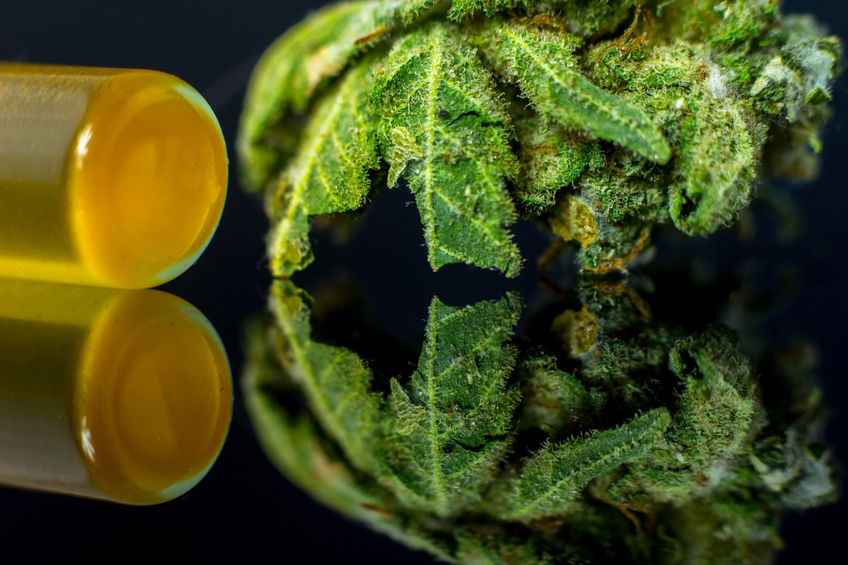
There’s a pretty easy explanation for this success: patients don’t have to meet qualifying conditions, and instead only need a referral from a physician. There are also no caps on dispensary licenses, which is why the current number is over 1,700. Additionally, the barrier to entry is low. According to the Arkansas Times, “The license to grow on a commercial scale or open a dispensary in Oklahoma is a flat $2,500 and a fare thee well, open to any Oklahoma resident who hasn’t had a felony in the past five years. Their law allows cardholders to possess up to a half pound of marijuana, and grow up to six plants at a time. Their law also made possession of up to 1.5 ounces by non-cardholders a misdemeanor punishable by a maximum $400 fine.”
Additionally, High Times Magazine put Oklahoma’s cannabis culture on the map when it held its renown Cannabis Cups in Oklahoma City in August.
Massachusetts Social Equity
As more recreational cannabis businesses come online in Massachusetts, the push for social equity is taking center stage. Real Action for Cannabis Equity (RACE) started in Boston in September, 2019 to address the dearth of minority-owned operators. Per Marijuana Business Daily, “Organizers say they’re frustrated that all but two of Massachusetts’ 184 marijuana business licenses were issued to white operators…black entrepreneurs in Massachusetts who say people of color are being shut out of the lucrative marijuana industry are joining forces to close the gap.”
New York Decriminalizes Cannabis
Though New York state failed to pass recreational cannabis during the 2019 legislative session, a last-minute compromise was reached on decriminalization. According to The New York Times,”Under the new law, possessing between one and two ounces of marijuana will no longer be considered a Class B misdemeanor. It will now be a violation, with fines up to $200. Those found with less than an ounce of marijuana will now face a $50 fine, compared with $150 previously.” In addition approximately 160,000 people will have cannabis convictions expunged from their records.

New Jersey Still has a Chance to Pass Recreational Cannabis
The Garden State saga to legalize recreational cannabis is back on. The state Legislature came up short on votes to pass a new law earlier in 2019, but the law-making body isn’t giving up, envisioning two scenarios:
- Holding another vote for the bill during the lame duck session at the end of 2019 or the first half of 2020
- Putting it on the ballot for the November, 2020 election
Governor Phil Murphy has voiced his preference of passing recreational cannabis through the Legislature versus relying on the ballot box. According to NJ.com, “Such a move would allow leaders to more easily mold and regulate the new marijuana industry. And waiting until next year’s elections means you likely won’t be able to consume weed legally in New Jersey until early 2021, at the earliest.”
Federal Cannabis Legislation: What You Need to Know
It seems commonplace that among the main news stories of the day, is a proposed federal congressional bill addressing cannabis reform. There are at least 10 right now with the most promising ones featuring bipartisan support. “Marijuana decriminalization may be one of the very few issues upon which bipartisan agreement can still be reached in this session,” said Rep. Tom McClintock (R-CA), adding “it ought to be crystal clear to everyone that our laws have not accomplished their goals.”
The two main strategies to end cannabis prohibition in the U.S. involve either legalizing at the federal level or creating immunity for states that pass their own legalization laws.
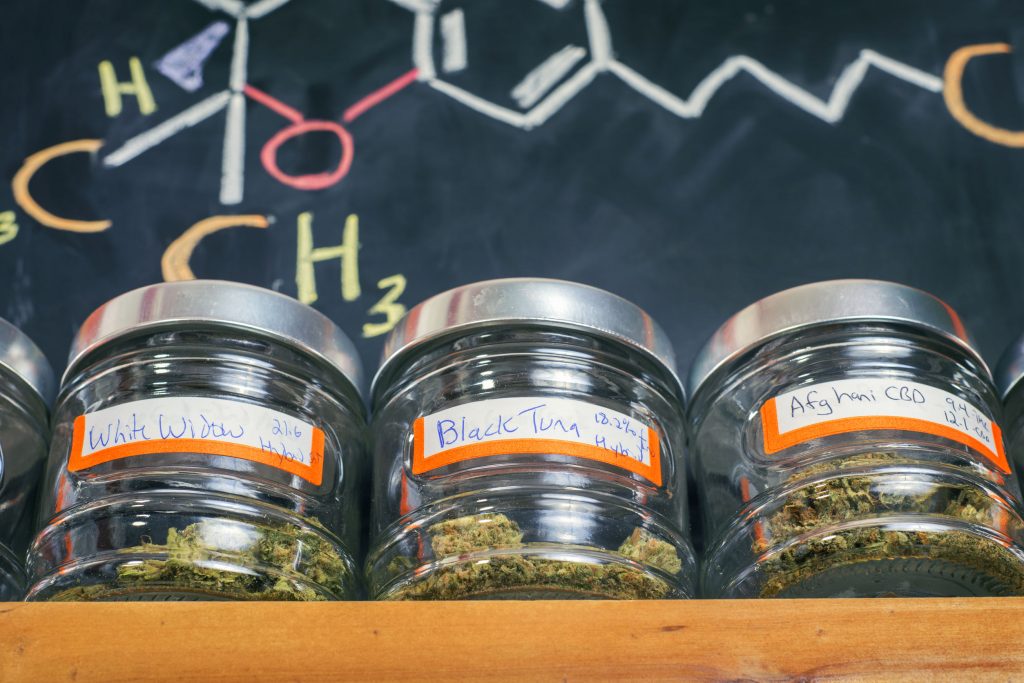
SAFE Banking Act
The SAFE Banking Act (H.R. 1595) would allow banks to work with the cannabis industry in legal states. This bill is unique because it has bipartisan support and it’s being moved along via committee hearing by Senate Banking Committee Chair Sen. Mike Crapo (R-ID) whose home state completely outlaws cannabis. Once opposed to any hearings due to the federal illegality of cannabis, Sen. Crapo has reconsidered. “We now need to, I think, move forward and see if there’s some way we can draft legislation that will deal with the issue,” said Crapo, according to Leafly News.
“Senator Crapo’s willingness to hold a hearing recently on the SAFE Banking Act was very encouraging,” Michael Correia, director of government relations for the National Cannabis Industry Association, told Marijuana Moment. “We’re thrilled to learn that he is open to solving this important issue and we are looking forward to working with the senator,” he added.
The STATES Act
Strengthening the Tenth Amendment Through Entrusting States, or The STATES Act (S. 3032), sponsored by Sen. Elizabeth Warren (D-MA), would amend the Controlled Substances Act and exempts state-approved marijuana activity from federal enforcement. In other words, states with a medical, adult use, or combined program could operate without ever fearing federal interference. The bill was first introduced in 2018 and reintroduced in 2019 with Sen. Cory Gardner (R-CO) signing on as a co-sponsor. The STATES Act was in response to the rescindment of the Cole memo, which President Obama created to protect legal cannabis state from federal interference.
However, there are those who believe the bill stops short of addressing racial and social matters. “We need to reinvest in those individuals and those communities that have been disproportionately impacted [by marijuana prohibition],” Baltimore State’s Attorney Marilyn Mosby, said. “The STATES Act does not do that, and that’s one of the reasons why I’m opposed to it.”
The two main strategies to end cannabis prohibition in the U.S. involve either legalizing at the federal level or creating immunity for states that pass their own legalization laws.
The MORE Act
The Marijuana Opportunity Reinvestment and Expungement Act, or The MORE Act, co-sponsored by House Judiciary Committee Chairman Jerry Nadler (D-NY) and Sen. Kamala Harris (D-CA), assuages those concerns. Considered the most comprehensive cannabis bill yet, it takes a three-pronged approach that addresses descheduling, state-control, and racial and social justice. If passed, the bill would remove cannabis from the Controlled Substances Act, allow states to write their own policies, and require cannabis convictions to be expunged or resentenced.
It creates further protections from the federal government, including prohibiting federal agencies from denying benefits to people found using marijuana and preventing immigrants from being deported for a cannabis-related conviction. The bill also sets up a 5 percent cannabis tax to establish grants for minorities and low-income communities.
“Racially motivated enforcement of marijuana laws has disproportionately impacted communities of color,” Nadler said in a statement. “It’s past time to right this wrong nationwide and work to view marijuana use as an issue of personal choice and public health, not criminal behavior.”
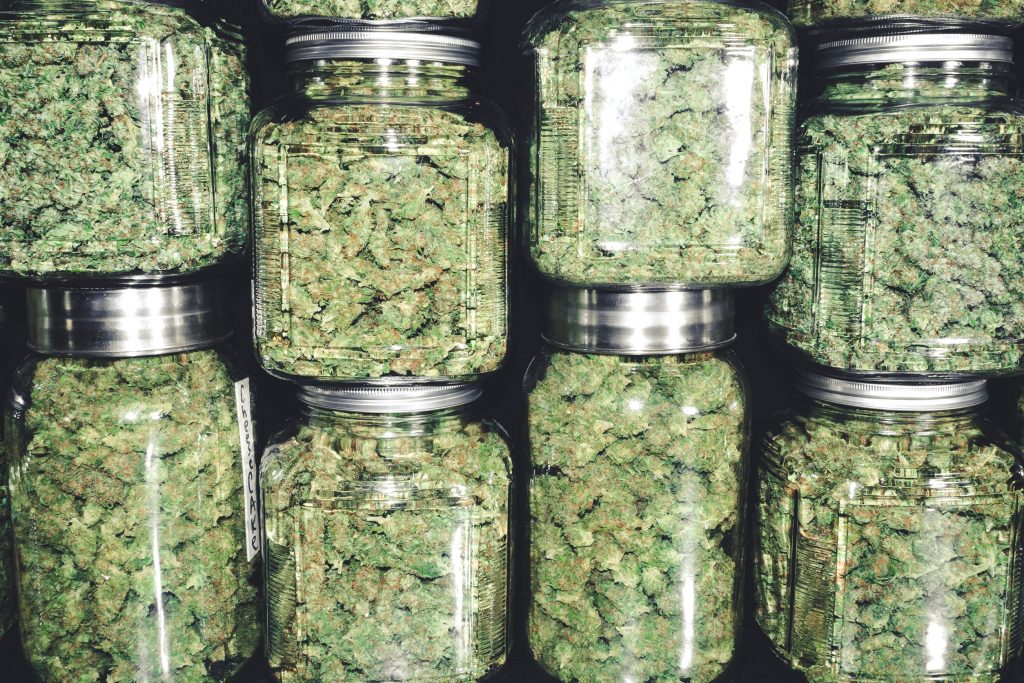
Amendment to H.R. 3055
This one is perhaps the most significant because it’s an Amendment that passed in the House of Representatives and is attached to an appropriations bill to fund parts of the federal government for fiscal year 2020. Specifically, the Amendment prevents the Department of Justice from interfering with state cannabis laws–covering D.C. and U.S. territories–including those allowing recreational use, cultivation and sales. It was approved by a floor vote of 267-165 with bipartisan support and is sponsored by Reps. Earl Blumenauer (D-OR), Eleanor Holmes Norton (D-DC), and Tom McClintock (R-CA).
“This is the most significant vote on marijuana reform policy that the House of Representatives has ever taken,” said NORML Political Director Justin Strekal. “Today’s action by Congress highlights the growing power of the marijuana law reform movement and the increasing awareness by political leaders that the policy of prohibition and criminalization has failed.”
Conclusion
Each of these pieces of proposed legislation come with “even if” or “even though” caveats. For example, even if the MORE Act were to pass the House, it would have a tougher time in the Senate. Even though the House approved the amendment that prevents the Department of Justice from interfering with state cannabis laws, will it achieve passage in the Senate and Senate Majority Leader Mitch McConnell (R-KY), who, though a champion of legalizing hemp, is opposed to cannabis? Still, the historic amount of cannabis bills and resolutions being drafted and considered by both chambers speaks to progress of cannabis legislation.
How Much Does It Cost To Start A Dispensary & Craft Grow
Cannabis Legalization News – Thomas Howard Podcast Featuring Andy Poticha
Tom Howard: It’s clearly 2:00 p.m. on a Wednesday, and so it’s cannabis legalization news time. We’ve had a huge week in cannabis legalization news. Illinois became … hey Miggy … what number is it?
Miggy: 11!
Tom Howard: 11. The big number 11, and we also have a guest joining us. It’s Andy Poticha. Say hi, Andy.
Andy Poticha: Hello.
Tom Howard: Awesome. Well, we’re going to round up the news, and then Andy is going to discuss with us his unique knowledge about something that’s so hot right now. The cost of getting into a cannabis cultivation facility in Illinois. They’re called, The Craft Grows or a dispensary, but first, I think the biggest news of the week was of course that JB Pritzker signed it into law. Now, it’s number 11, but there’s been a lot of other really cool federal news, and Miggy have you heard anything on the west coast? Is there anything that you’re working on for weednews.co.
Miggy: No. Not me, per se. I mean state-by-state has been great also with New York and Texas and Ohio, but those are all more medical and one is decriminalization. The Banking Act.
Tom Howard: The Banking Act. I’m actually going to present to everybody, that’s another thing. So FinCEN did just release, and says that FinCEN publishes these on a quarterly basis, but of course it takes them a little bit of time to get the actual date. This came out this past week, and it’s current as of April 1. When the quarter ends here in about a week for June, these numbers will be updated and then FinCEN will publish that in another couple of months.
Tom Howard: But you can see the sharp uptick right there. Q3 2018. Basically JB Pritzker won, and then maybe this was also some New York thing. They don’t really publish those, but this is the number of banking institutions that are lending to marijuana. Interestingly enough, the thing that you see when you are lending to marijuana a lot, and hopefully my screen was on there, is –
Miggy: Hey, Tom.
Tom Howard: They file nondisclosure agreements and all that other stuff to kind of keep it secret, but this uptick, and a fairly large uptick according to the number of banks that are actually banking cannabis, somewhat corresponds to the stuff that’s been coming out of Congress. This is a really fresh news. This is from the Marijuana Moment, just from like a half hour ago.
Miggy: Oh nice.
Tom Howard: Right. And if you’re not familiar with what’s going on in the federal level, especially when it comes to banking and cannabis, it has to do with two things. One is the defunding of the war against marijuana for everything, not just medical, but state law marijuana. Second is the continuing pushing of the Safe Banking Act, placing it into the funding bills itself. As we get up the fiscal cliff, the fiscal cliff happens every year September 30 because that’s when the federal budget actually ends. The budget that will be passed that will continue to fund, that’s how hemp was legalized. That’s how the first war on marijuana was defunded back in 2014, through Rohrabacher-Farr Amendment just for the medical. It looks like the budget for 2020, plus Illinois going open for business, will really signal it’s time to go. It’s time to lend to cannabis businesses, and I would not be surprised if New York next year legalizes it. I think 2020’s going to be the biggest year for cannabis legalization ever. What about you, Miggy?
Miggy: No, I totally agree, especially since the House agrees to protect the legal states. That’s a huge step towards legalization, like you said. Just like jury nullification but in a financial way of how to attack prohibition.
Tom Howard: There’s jury nullification. That’s great, but you’re already being prosecuted. You’re on trial. Imagine if you could just stand up during a trial and be like, “Excuse me, Your Honor. There’s no money for this trial.”
Miggy: Yeah, yeah. That’s for sure. Defunding the war on drugs. I think that’s the best way to put it. FYI, when you had the chart on the screen, on YouTube, I was a predominant screen.
Tom Howard: That gets back to, I really need, and if anybody’s out there that is majoring in YouTube, and also social media SEO and has a paralegal degree, I will hire you because I am doing this all myself. And it’s sad. Somebody could be managing this, and then I could get back to work for the clients, which are just blowing up my phones. It’s going great, but that’s one of the reasons why we brought our guest on. He has actually designed and built cannabis facilities in Illinois. Andy.
Andy Poticha: Yes?
Tom Howard: How many of these facilities have you built?
Andy Poticha: In Illinois, we have completed four dispensaries and one cultivation, and are working on one cultivation and another dispensary at this point. That’s just in Illinois. We’ve been doing work in other states outside of Illinois as well. We’re working on our 8th state, actually.
Continue reading “How Much Does It Cost To Start A Dispensary & Craft Grow”
Illinois Recreational Cannabis: What You Need to Know
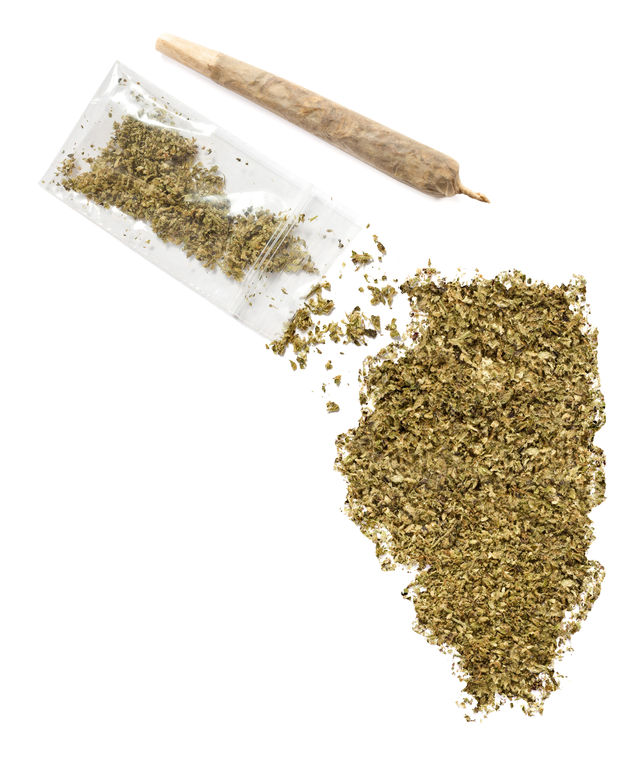
“In the interest of equity and criminal justice reform, I look forward to signing this monumental legislation,” said Illinois Governor, J.B. Pritzker, following the passage of House Bill 1438 on Friday, May 31, 2019. The 66-47 vote made Illinois the 11th state to legalize adult-use cannabis and the first to do so through the state legislature. Vermont’s program was approved through its legislature but does not permit commercial sales. Approval in other states occurred via referendum.
The bill, which passed 38-17 in the state Senate two days earlier, focuses on social equity and addressing Illinois’ financial deficit. Chicago Crain’s Business reports that, “Illinois expects sales to eventually reach $1.5 billion to $2 billion a year, producing $500 million in revenue for the cash-strapped state.”
Following the November, 2018 midterm elections, we commented on what Governor Pritzker’s election victory would portend for the future of cannabis in Illinois. Once he signs the bill, it will be the law of the land.
Here’s what you need to know about the new law:
Growing and Selling
Recreational sales will begin on January 1, 2020, with priority given to businesses with current medical licenses. They will be eligible to start cultivating, producing, and selling cannabis for retail use.

According to the Chicago Tribune, “Only the 20 existing licensed medical marijuana cultivation facilities will be licensed to grow it initially. Next year, craft growers may apply for licenses to cultivate up to 5,000 square feet, with preference given to applicants from minority areas disproportionately affected by the war on drugs, such as the South and West sides of Chicago. Medical marijuana dispensaries and new retail stores will be licensed to sell it.”
Buying
The bill allows for Illinois residents 21 and older to possess up to 30 grams or roughly one ounce of cannabis flower or bud. They are also allowed five grams of cannabis concentrate or 500 milligrams of THC in a cannabis-infused product. Adults visiting the state can possess up to 15 grams of cannabis. Growing plants at home will remain illegal except for certified medical patients.
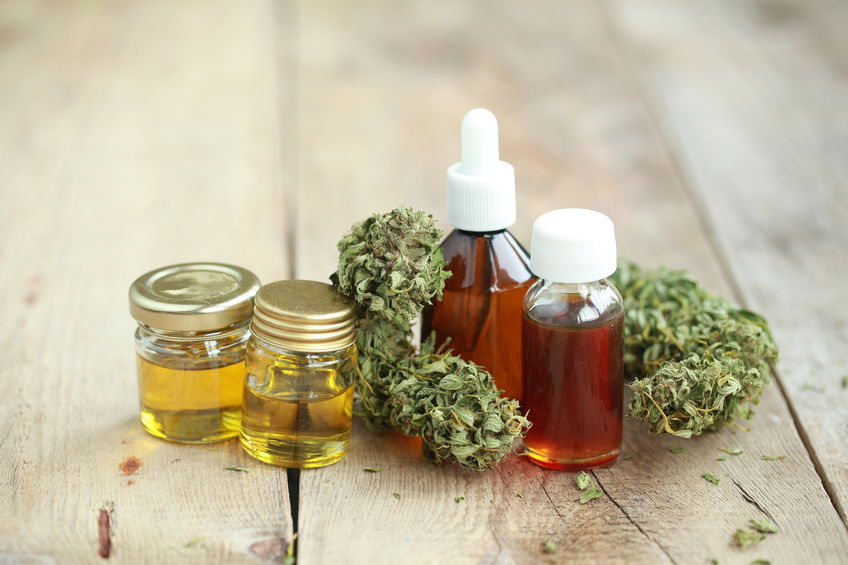
Impact on Convictions
Central to the bill was the expungement of cannabis convictions.
“While the usage of cannabis has been the same across all racial groups, the actual incarceration charges have been shown to be seven times more likely for people of color than Caucasians,” said Illinois State Senator. Heather Steans (D-Chicago), the Senate bill’s main sponsor. “This bill is going to set the model, I believe, the gold standard, for how to approach social equity issues related to cannabis legalization.”
Here’s what’s at stake for convicted felons, according to the Chicago Tribune: “The governor will pardon past convictions for possession of up to 30 grams, with the attorney general going to court to expunge or delete public records of a conviction or arrest. For possession of 30 to 500 grams, an individual or a state’s attorney may petition the court to vacate and expunge the conviction, but prosecutors may object, with a judge to make the decision.”
Taxation
Per ABC News and the Chicago Tribune, consumers will be taxed in the following way:
- A 10% tax will be levied on cannabis products containing less than 35% THC
- 20% for cannabis-infused products like edibles
- 25% for THC concentrations of more than 35%
Additional state and local taxes apply and can be as high as 9.75%, including:
- 3% municipality
- 3.75% county in unincorporated areas
- 3% in Cook County (Chicago)
Opting In or Out
Similar to other adult use programs, local governments may opt in or out. According the Chicago Tribune, “Municipalities and counties may ban cannabis businesses within their boundaries, but may not ban individual possession. Any person, business or landlord may prohibit use on private property. Colleges and universities may continue to prohibit marijuana use.”
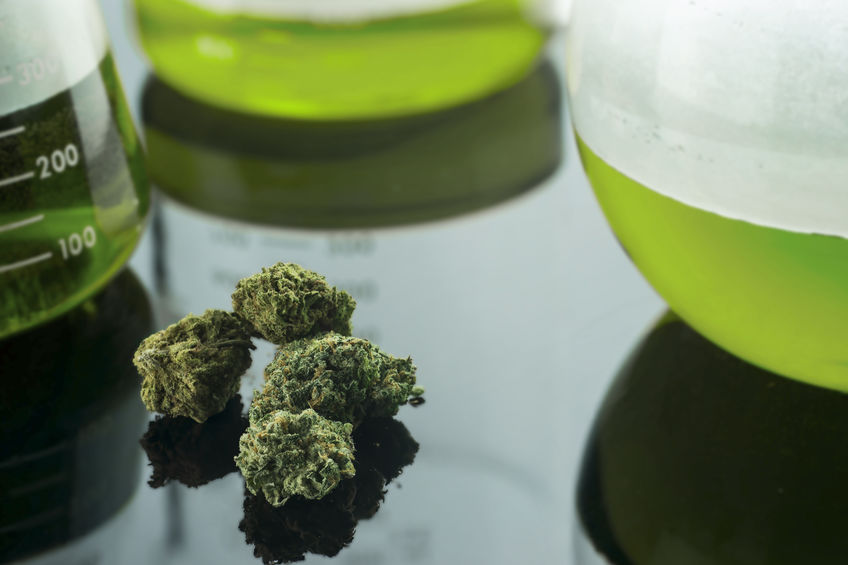
Where You Can and Cannot Consume
Usage at home is permitted as long as it’s out of view of the public. Places where use is strictly prohibited include: public areas, school grounds, in any motor vehicle, in a correctional facility, around someone under 21, while driving a boat or flying a plane, or by a school bus driver, police, fire or corrections officer while on duty.What Else?
Cannabis remains a Schedule 1 illegal drug by the federal government; however, federal law enforcement tends not to prosecute possession of small amounts or businesses complying with state programs.
Medical cannabis was also a winner at the eleventh hour of the legislative session. The House passed the bipartisan SB 2023, which will make the Compassionate Use of Medical Cannabis Pilot Program Act permanent while broadening its scope. Illinois State Representative Bob Morgan’s (D) reauthorization bill removes the program’s July, 2020 sunset and adds more patient qualifying conditions, including chronic pain and autism.
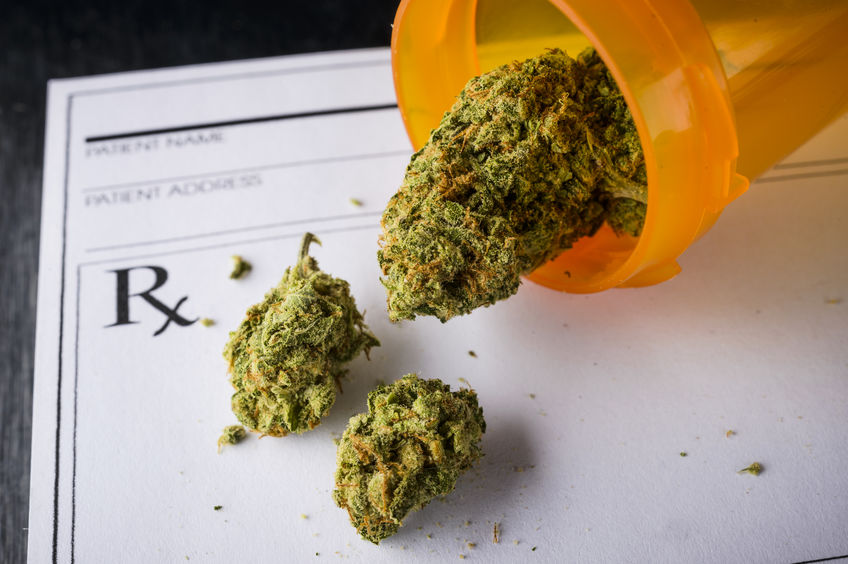
The bill also permits advanced practice nurses and physician assistants to recommend medical cannabis in addition to physicians and increases the number of caregivers that patients can use to access the program. Similar to the adult-use program, the reauthorization bill emphasizes equity standards and will award five dispensary licenses to ensure equal opportunity.
“It is critical for the state that the pilot program be reauthorized and revised,” said Morgan in a press release. “The initial program placed a significant regulatory burden on patients. With the passage of SB2023, the new program will streamline the process and help patients suffering from debilitating medical conditions.”
Israel’s Contribution to Cannabis Innovation
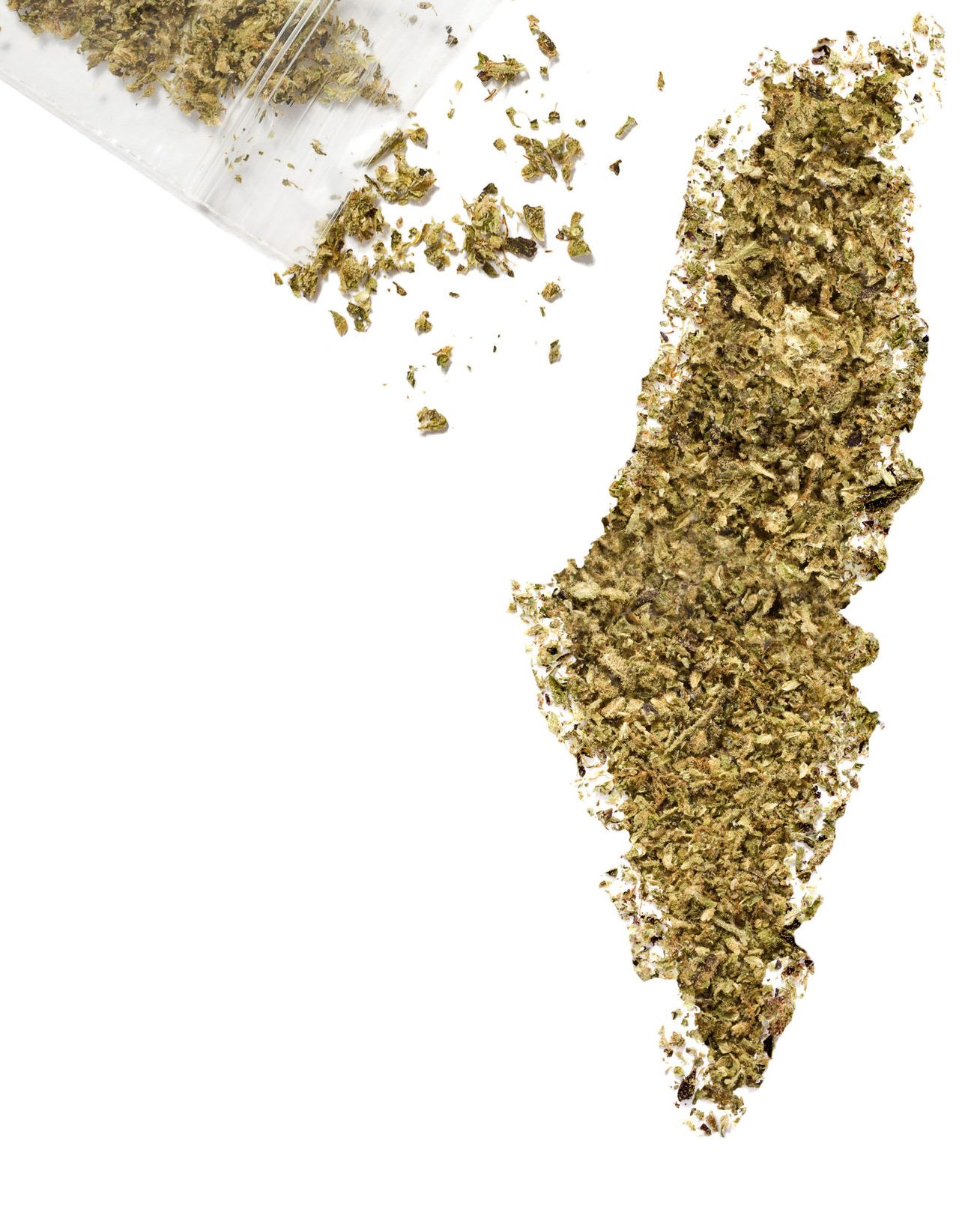 Medical cannabis has been legal for only ten years in Israel, but the country is widely considered the global leader in cannabis innovation. It started back in 1964 when Israeli chemist and “Godfather of Cannabis Research”, Dr. Raphael Mechoulam discovered Tetrahydrocannabinol (THC) and the body’s endocannabinoid system, the largest receptor system in the human body. Mechoulam’s breakthrough is credited with legitimizing the scientific study of cannabis, but Israel’s contribution to cannabis innovation has not stopped there.
Medical cannabis has been legal for only ten years in Israel, but the country is widely considered the global leader in cannabis innovation. It started back in 1964 when Israeli chemist and “Godfather of Cannabis Research”, Dr. Raphael Mechoulam discovered Tetrahydrocannabinol (THC) and the body’s endocannabinoid system, the largest receptor system in the human body. Mechoulam’s breakthrough is credited with legitimizing the scientific study of cannabis, but Israel’s contribution to cannabis innovation has not stopped there.
Global Leader in Cannabis Research
Currently, there are more clinical trials in Israel than any other country. Not only does Israel have a government-sponsored cannabis program, it also boasts the world’s highest percentage of financial resources devoted to research, with much of the funding coming from the U.S., Canada, Australia, and Germany, where federal laws obstruct research and trials. Since cannabis remains a Schedule 1 narcotic in the U.S., American companies and organizations have been outsourcing their research to Israel. For example, the National Institutes of Health has funded Mechoulam’s research for the past 50 years, providing an average of $100,000 a year to study the medicinal benefits of cannabis.

Ground-Breaking Autism Study
Israel further highlighted the efficacy of medical cannabis for the treatment of autism. A recent study conducted by Ben-Gurion University of the Negev and Soroka University Medical Center showed promising results. 188 patients treated with cannabis oil reported significant improvements in quality of life and mood. According to the Jerusalem Post, “A good quality of life, which was reported by 31.3 percent of patients prior to treatment initiation more than doubled to 66.8 percent at six months. Positive mood moved up to 63.5 percent from 42 percent after six months. Good sleep, reported by only 3.3 percent of patients, shot up to 24.7 percent, and concentration went up from zero percent to 14 percent during active treatment.”
__________________________
Israel boasts the world’s highest percentage of financial resources devoted to cannabis research.
__________________________
Penetrating the U.S. Market
Seizing on the expansion of medical cannabis programs here, Israel is investing in U.S. markets. Tikun Olam, the first licensed medical cannabis provider in Israel, currently offers its proprietary oils, tinctures, topicals and other delivery forms in Delaware and Washington state, and will be entering California and Florida next. The company has been testing 32 genetically unique strains of cannabis for help with cancer side effects, autism, Crohn’s disease, active Parkinson’s, Tourette’s, Fibromyalgia, and complex motor disorders. Since the importing of cannabis into the U.S. and transport across state lines is illegal, Tikun Olam is investing in infrastructure in these states where its products can be grown, processed, and sold.
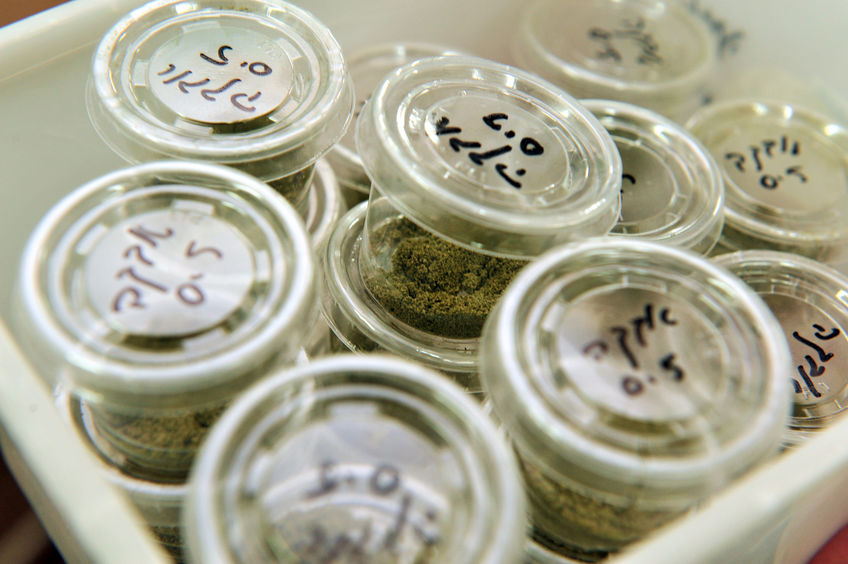
The Latest
In January, the Israeli Cabinet approved a law permitting the export of medical cannabis, following a parliamentary approval in December of last year. Along with the Netherlands and Canada, Israel is now the third country in the world to allow the medical cannabis product-exportation.
Oklahoma is Good for Cannabis Business
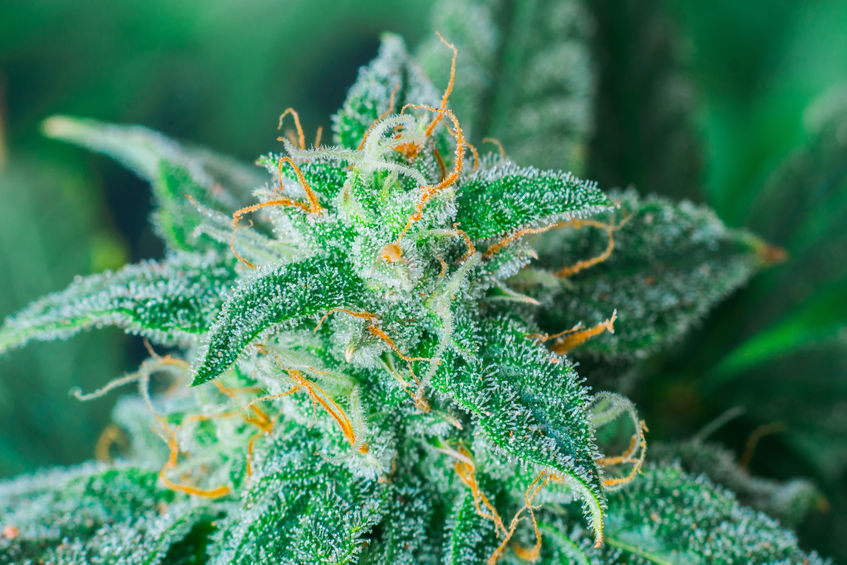
The green rush is on in the Sooner State.
Oklahoma–renowned for its once harsh possession penalties–is now a land of opportunity for medical cannabis businesses. Among the nation’s most progressive medical cannabis programs, Oklahoma has hit the ground running in only six months and is light years ahead of other states delayed by stagnating legislation.
____________________________
One of Oklahoma’s greatest differentiators is its reciprocity program that allows patients with out-of-state medical cannabis cards to qualify for renewable, temporary licenses.
____________________________
Opportunities Abound
The Oklahoma medical cannabis market could realize $250 million in annual sales in its first few years. According to the Oklahoma Medical Marijuana Authority, more than 2,200 business licenses had been issued, with an approved patient pool of more than 24,000 as of December, 2018. This speed-to-market is attributed to the fact that SQ 788 bypassed a special legislative session likely to have imposed restrictions, but instead prioritized patient-needs to get immediate access to cannabis treatments. The result is that there is no limit on business licenses, and doctors are free to recommend medical cannabis to patients for any condition they deem appropriate. In addition, the program is all-encompassing, prohibiting municipalities, cities, or counties from opting out.

High Retail & Wholesale Prices
Though there’s no cap on business licenses, supply is tight and product demand high, which is good news for dispensaries. Patients are lining up en masse for the state’s program, creating premium value for inventory. An ounce of cannabis flower, for example, averages $400, double the cost of Arizona’s medical cannabis market. Cultivation is prospering as well, with wholesale prices averaging between $3,500 – $4,500 per pound–at least twice that of competing markets.
Reciprocity Program
One of Oklahoma’s greatest differentiators is its reciprocity program that allows patients with out-of-state medical cannabis cards to qualify for renewable, temporary licenses. They cost $100, are valid for 30 days, and permit patients to purchase, use, and even grow cannabis in Oklahoma. This provision is especially enticing for Arkansan customers as a stopgap while that program ramps up.

What’s Next?
Some industry insiders caution that the possibility of over-cultivation and low prices will drive down retail and wholesale prices as it’s happened in other markets. Still, with so much success in its nascent stage and the evolution of regulations, Oklahoma may find a way to stabilize supply, increase demand, and sustain momentum.
New Governors See a Bright Future for Cannabis
Several governorships flipped as a result of the midterm elections, which can mean moving the needle on cannabis legislation. Here’s what we know about the new Governors Elect and how they are poised to change the cannabis landscape of their states:
CONNECTICUT
Ned Lamont
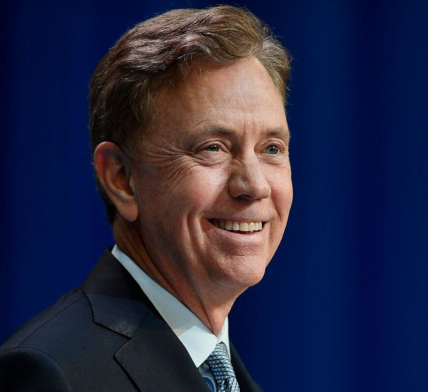
Recognizing that Connecticut could see $30 million or more in tax revenue in year one of legalized recreational cannabis, Lamont has stated, “It is another source of revenue for the state. All of our neighbors have legalized marijuana. We [can] do this carefully [and] regulate it.”
KANSAS
Laura Kelly
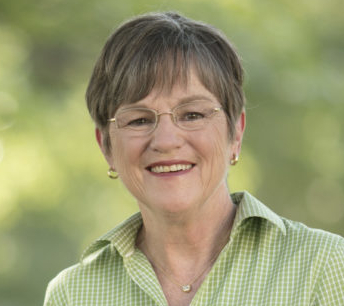
The majority of Kansans support legal recreational cannabis, but Governor Elect Kelly wants to start with medicinal first. “I think that there is some momentum in the Legislature to pass, to legalize medical marijuana,” she said. “I think we would do it Kansas-style, where it would be well-regulated.”
ILLINOIS
JB Pritzker

Voters in Cook County supported recreational cannabis by a margin of 63 – 37 percent in a non-binding ballot referendum in March. It served only to gauge interest for the state, which has had a medicinal cannabis program since 2015. The day after winning the gubernatorial election, Pritzker noted that legalizing the sale and possession of cannabis for recreational use is “something we can work on nearly right away…We’ll restart those conversations with the leaders in both Houses, on both Republican and Democratic sides about our priorities, which will include legalization.”
MINNESOTA
Tim Walz

The pro-cannabis Democratic–Farmer–Labor Party now controls the governorship, AG office and state House, which will help Governor Elect Walz with his recreational cannabis agenda. Earlier this year, he tweeted, “I support legalizing marijuana for adult recreational use by developing a system of taxation, guaranteeing that it is Minnesota grown, and expunging the records of Minnesotans convicted of marijuana crimes. #mngov #OneMinnesota”
NEW MEXICO
Michelle Lujan Grisham
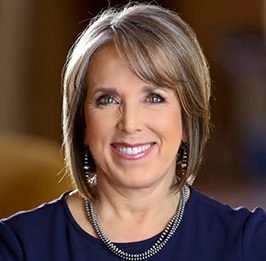
The Tax Foundation projects that New Mexico, a medical cannabis state, could raise up to $57 million in a year should it enact recreational legalization. Governor Elect Lujan Grisham appears to be onboard: “I am committed to working with the Legislature to move towards legalizing recreational cannabis in a way that improves public safety, boosts state revenues, and allows for New Mexico businesses to grow into this new market.”
WISCONSIN
Tony Evers

Evers is in favor of medical cannabis and will leave it to voters to decide on adult-use legalization. If the midterm elections were any indication, Wisconsin should have a fully legalized program sooner than later. Non-binding referenda in 16 counties and two cities showed that an overwhelming majority of voters support recreational and medical cannabis.
Significant legislative changes are not expected by governors elect of states that have already enacted full adult legalization. Gavin Newsom (California), Jared Polis (Colorado), Steve Sisolak (Nevada), and Kate Brown (Oregon) will most likely continue advocating as Marijuana Policy Reform Allies. Gretchen Whitmer (Michigan), a consistent supporter, will assume office in the state to most recently pass adult legalization.
Check out our other 2018 election post Green Wave: Cannabis is Midterm Elections Winner.

